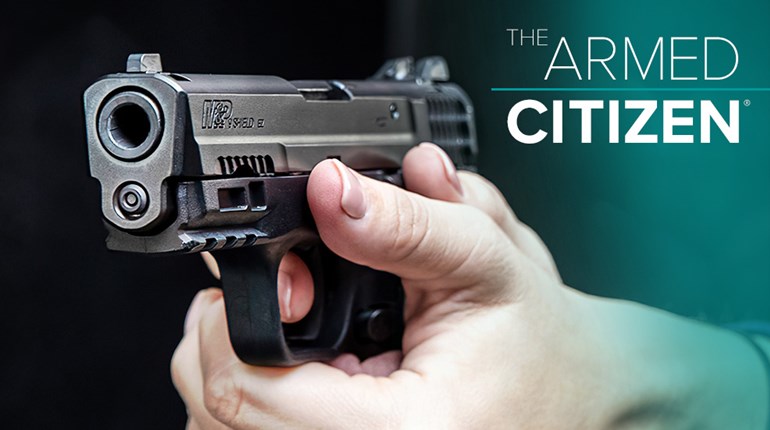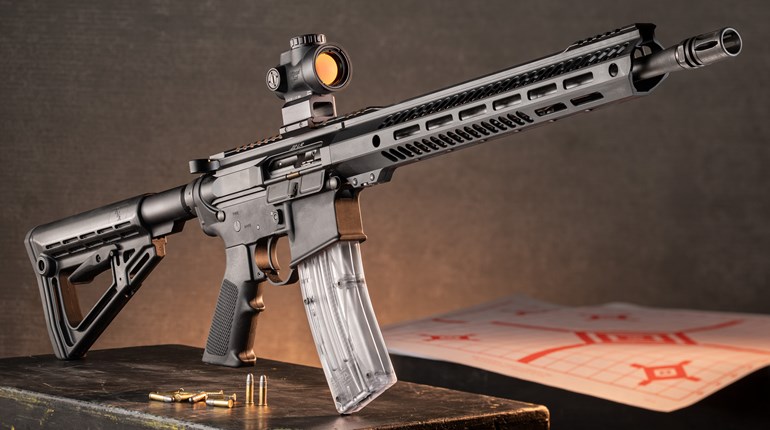
“The Second Amendment has nothing to do with hunting!” is a forceful refrain from many gun rights supporters in today’s age, but is it really true? In a technical sense, it most definitely is. The text of this all-important section of the Bill of Rights recognizes the people’s right to keep and bear arms. The reason Madison and those other brilliant members of the founding generation thought the right so important during this snapshot in history was its function as the ultimate safeguard against the omnipresent threat of tyranny the world had known so well for centuries.
Who could blame them for worrying about the “security” of their newly formed “free state,” won only after inconceivable risk and sacrifice? The simple folks of that generation had taken up their simple arms and defeated the most powerful, complex and skilled military in the world. They had shed the yoke of tyranny after the liberal exercise of their pens and printing presses first, and then their arms. There is no clever riddle behind the order of the first two amendments to the U.S. Constitution.
We all must understand that the Bill of Rights did not create any novel individual rights. It did nothing more than formally recognize what the Founders knew were pre-existing or “natural” rights enjoyed by free people—by citizens, not subjects. The right of the citizens to keep and bear arms mentioned in the amendment has a great deal to do with both hunting and self-defense.
There were a number of intelligent men at the time who adamantly argued against adopting the Bill of Rights because they believed it could potentially trivialize the rights emanating from nature that every freedom-loving person understood. In light of the existence of those misguided individuals among us today who believe that all power and good flows from government, we are fortunate these doubters did not prevail.
A human’s right to arms has existed since the dawn of time, and Madison knew it as he set pen to paper to begin, “A well regulated …” The first exercise of the right probably involved the use of a stone or stick to kill a beast for food and clothing or to fend off an attacker, whether animal or fellow man. In the late 18th century, hunting was still one of the primary means available for Americans to acquire sustenance; the complete lack of any professional police force made the availability of arms, whether blade or gun, for self-defense absolutely essential.
Madison’s use of the word “the,” instead of “a,” before “right” was most telling. It showed undoubtedly that he was referring to something already in existence, not something being created as his pen traveled across the paper. The Founders knew that the right existed for personal protection, provision of food by hunting and, from a loftier perspective, the protection of free people from the overbearing hand of government.
What many people understand when they hear the assertion that opens this article is that “the right to keep and bear arms has nothing to do with hunting.” This, unlike that opening line, is completely incorrect. The right of the citizens to keep and bear arms mentioned in the amendment has a great deal to do with both hunting and self-defense. There is no reason for gun rights advocates to dismiss this fact. It serves no good purpose to do so. We can talk about the legitimate fears of the Founders in 1789 while still honoring our natural right to arms.
If you believe polling, it tells us that about one-third of America’s 100 million gun owners own guns primarily for the purpose of hunting. As a guy who carries a handgun every day of his life for self-defense, it’s hard to fully grasp this, but there is enough evidence out there to indicate it’s true. Why would we ever want to diminish their significant place in our collective battle for American freedom by telling them that the natural right to arms is not about hunting when it clearly is? It seems that we are all better off to be more inclusive, not exclusive.
As gun rights advocates, we can always work to be more precise in our language and messaging. If we want to talk about the significance of the right to arms in protecting people against overzealous government, we can talk about Madison, Mason, Hamilton, Jay and the rest. However, we don’t have to suggest that they supported this reason for arms ownership to the exclusion of every other reason at the time, including hunting.
When I hear a silly politician or other gun prohibitionist say something like, “You don’t need an AR-15 to hunt deer,” this is what I think a perfect response—one that doesn’t disenfranchise our fellow patriots—might sound like:
“First, it’s a bill of rights, not a bill of needs, so it’s not up to you or anyone else to decide what I ‘need,’ but thank you for trying to help. Second, while the natural, preexisting right to arms is all about hunting and self-defense, the specific text of the Second Amendment referred to the people’s right to arms in order to ensure the security of our free state (what we understand as our ‘country’ today).
The Founders really did believe that an armed citizenry was the surest protection against tyranny triumphing over the people, as it had in every other society the world had known at the time. Do you think that they would have thought that placing the citizens at some technological disadvantage to government forces would somehow further their goal of protecting liberty? You know the answer to that one. The fact is that scary-looking arms—the ones you like to hate—are arguably even more protected by the actual text of the Second Amendment than whatever antiquated arm you think I should be hunting deer with. Again, I appreciate your concern, however misguided it may be.”
It barely even needs to be argued that the Second Amendment is not only about hunting or sport shooting. But when we get defensive and act like it isn’t about hunting at all, we stand to alienate some of the finest and most powerful supporters of freedom that our nation has. That’s why it’s important that we recognize what a vital role hunting plays in the defense of our right to keep and bear arms.


































